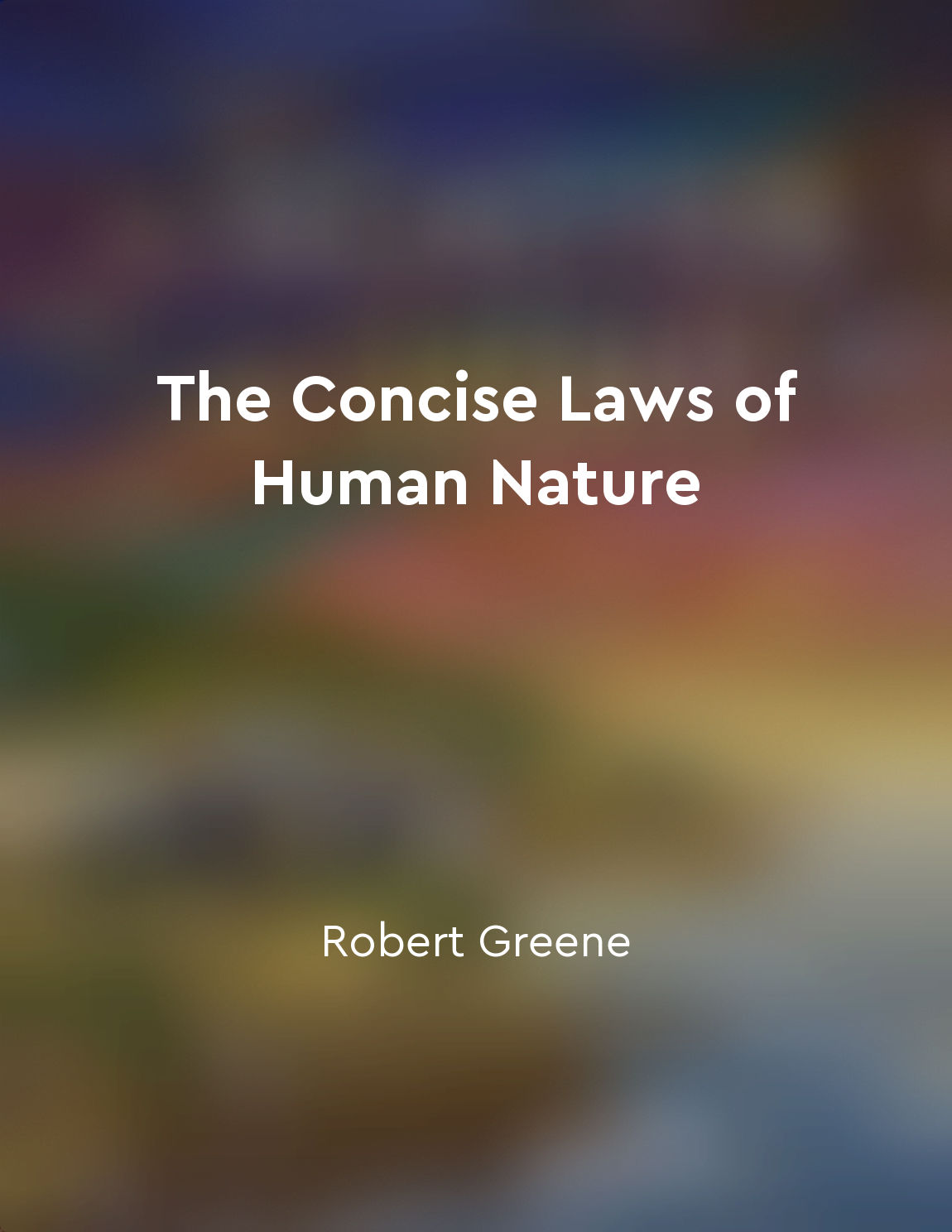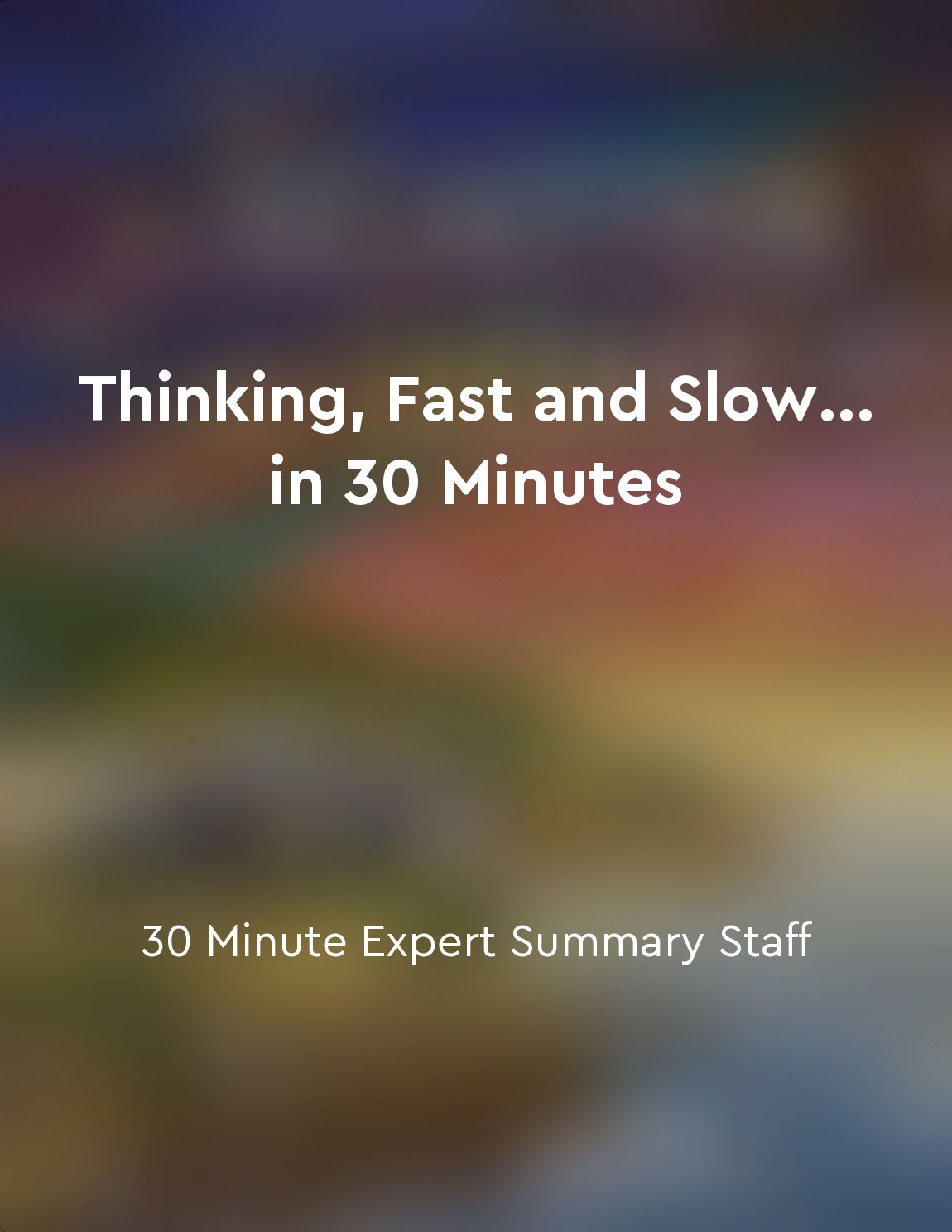Confidence in our perceptions does not always correlate with accuracy from "summary" of The Invisible Gorilla by Christopher Chabris,Daniel Simons
Consider this: have you ever been absolutely certain about something, only to later realize you were completely wrong? It happens to everyone. We rely on our perceptions to navigate the world around us, but those perceptions are not always accurate. In fact, our confidence in our perceptions does not always align with reality. In their book 'The Invisible Gorilla', Chabris and Simons explore the concept of perception and how it can be deceiving. They present a number of experiments that demonstrate how our minds can play tricks on us, leading us to believe we are seeing or experiencing something that is not actually there. One particularly famous experiment involved a group of people passing a basketball back and forth; while focused on counting the number of passes, most participants failed to notice a person in a gorilla suit walking through the scene. This phenomenon, known as "inattentional blindness", highlights the disconnect between what we think we see and what is actually in front of us. Despite our confidence in our ability to perceive the world accurately, we are often unaware of the limitations of our own minds. Our brains are not infallible, and our perceptions can be easily influenced by a variety of factors. The authors argue that understanding the fallibility of our perceptions is crucial in order to make more informed decisions and avoid falling victim to cognitive biases. By recognizing that our confidence in our perceptions does not always correlate with accuracy, we can become more skeptical of our own judgments and more open to alternative perspectives. This awareness can ultimately lead to a deeper understanding of ourselves and the world around us.- The concept of confidence in our perceptions not always correlating with accuracy is a fundamental aspect of human cognition that deserves closer examination. By acknowledging the limitations of our own perceptions, we can begin to see the world in a more nuanced and objective light. Through critical thinking and self-awareness, we can strive to overcome the pitfalls of our own minds and make more informed decisions in our daily lives.
Similar Posts
Urgency: creating a sense of time pressure
Urgency is a powerful psychological trigger that can be used to create a sense of time pressure in individuals. By leveraging u...
Building rapport is key
Building rapport with others is a crucial aspect of successful persuasion. When you take the time to establish a connection wit...
The line between truth and fiction blurs
In the story, reality and illusion become intertwined, creating a sense of uncertainty and confusion for the characters. As Mar...

Protecting yourself from manipulation
Protecting yourself from manipulation is crucial in today's world where dark psychology techniques are constantly being used to...

The ego is a barrier to selfdiscovery
The ego is a barrier that prevents one from truly discovering oneself. It is like a thick fog that clouds the mind and distorts...

Striving for selfmastery is a lifelong journey that requires self-discipline and awareness
The path to self-mastery is not a destination to be reached but a journey to be embraced. It is a voyage that requires constant...
Social hierarchies can influence behavior and attitudes
Social hierarchies play a crucial role in shaping human behavior and attitudes. People are constantly navigating various social...
Cultivate logical reasoning skills
To sharpen your thinking skills, it is important to cultivate logical reasoning skills. This involves developing the ability to...

Manipulators use charm to deceive
Manipulators are experts at using charm to lure their victims into their web of deceit. They possess a magnetic personality tha...

Cognitive ease affects preferences
When people make decisions, their choices can be influenced by the ease or difficulty of processing information. This concept i...

